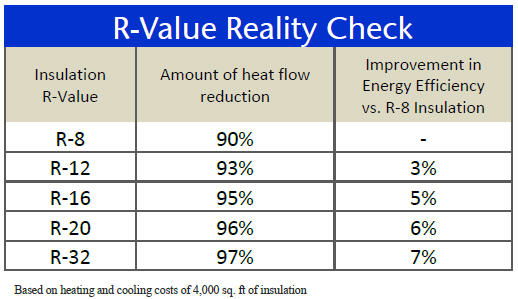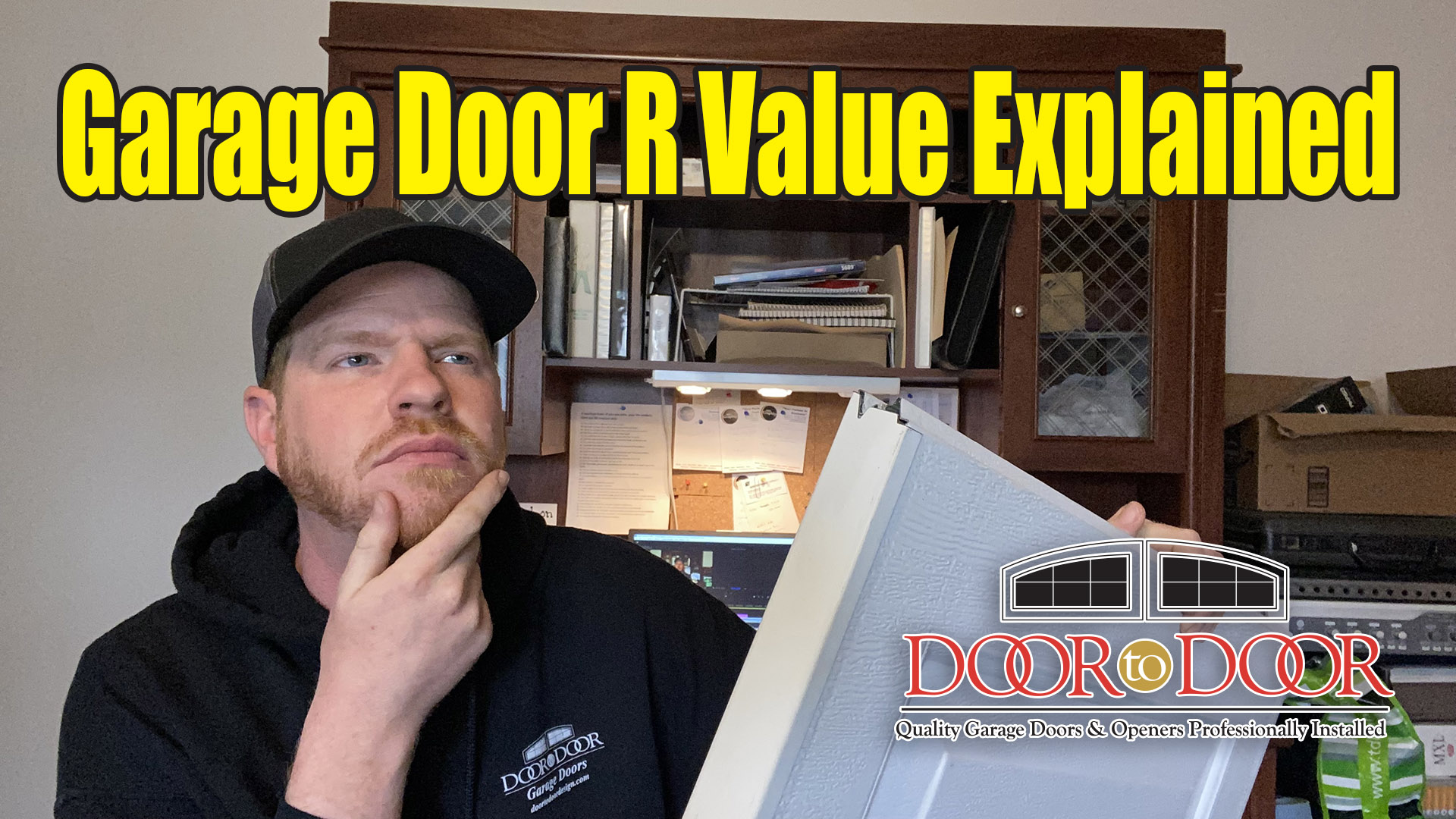I’m going to be talking a little bit about garage door R-value, R-value is used to rate how well-insulated a garage door is. It’s a term for rating insulation that you will see on your regular home insulation as well as windows and other things that provide some sort of air barrier you’re going to want to know how energy efficient it is.
This is especially true in terms of doors and windows, where you’re going to see how well you’re going to keep the heat in or the heat out or cold in or out depending on your goal for sealing up your home. Garage Door R Value recently has been discussed more with the advent of the steel insulated garage doors before this, a lot of the wood doors, especially the older wood doors, you’d see a wood frame with Masonite panels with no R-value. Garage door manufacturers slowly started adding insulation into the wood frame of the wooden garage doors. Now steel garage doors are available with different levels of insulation. We primarily install steel-backed, insulated garage doors more for strength than anything else. They also do provide an air barrier to help keep your garage warm or cool, depending on the season and what you’re trying to accomplish.
Different Levels of Insulated Doors
The first one we are looking at is a hollow steel door. This one isn’t going to have an R-value. We don’t do too many of these except for the occasional detached garage or someplace the insulation doesn’t matter. They’re a little flimsy. They also have a model where they’ll just glue a little piece of insulation into the back. Something like that would have an R-value of about 6.5. But again, it’s still flimsy being a hollow door with just a piece of insulation, usually, Styrofoam, glued in.
The next level up from something like that which is probably the most popular door that we install would be a 1 ⅜” thick steel back sandwich door. This one’s going to provide an R-value of 6.5 as well, but with the steel back, it’s a lot sturdier. It’s built with a front skin and back skin with insulation in the middle. This triple-layer design keeps the door from flexing or twisting over the 8’ or more door width. You’re going to see a much stronger door with an R-value still at about 6.5, which I would say is sufficient if the garage isn’t heated.
If you start heating the garage or have colder rooms above the garage then you might want a door with a higher R-value. The next level, which is still Styrofoam insulation, but it’s a little bit thicker, is a 2-inch thick door. They usually are rated with an R-value of 9 give or take.
The next level up after that is a 2-inch door with Polyurethane spray foam insulation. They take the two skins and inject them with expanding foam. That’s going to get you your best R-value because it is a lot denser compared to just regular Styrofoam. These usually start around 13.35 R-value and go all the way up to 19.4 as one of the higher R values for residential garage doors.
Do You Need A Higher Garage Door R-Value?
If you’re planning on heating the garage, or if you have rooms above the garage that get cold would be the main reason for wanting a higher R-Value. One thing to keep in mind when you’re looking at the R-value of a door is how well-insulated is the rest of the garage. A lot of times we will see people wanting to have a very high insulated door, but the walls in the garage and everything else are not insulated. This will end up being a waste. It’s something to think about when you’re deciding on a garage door for your home depending on how you plan on using the garage.
One thing that trips a lot of people up is they will see a garage door with an R-value of 6.5 and a garage door with an R-value of 19 and think that door will provide more than twice the insulating efficiency but if you look at the chart below the further you go up in R-value you only gain a few percentage points in efficiency. In many cases upgrading to a garage door with a higher R-value is not worth the extra money.

I hope this helps demystify some of the questions about garage door r value and how important it is for your home. I would say at the very least you will want a 1 ⅜” insulated steel sandwich door and if you plan on heating the garage go up from there depending on what your budget allows.
Always reach out to us at Door to Door Garage Doors for more information regarding your garage door and electric opener.

